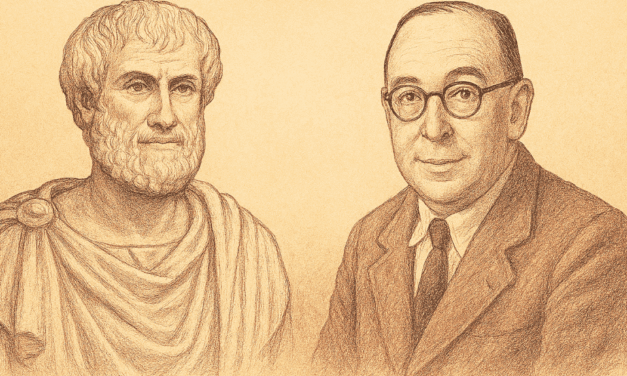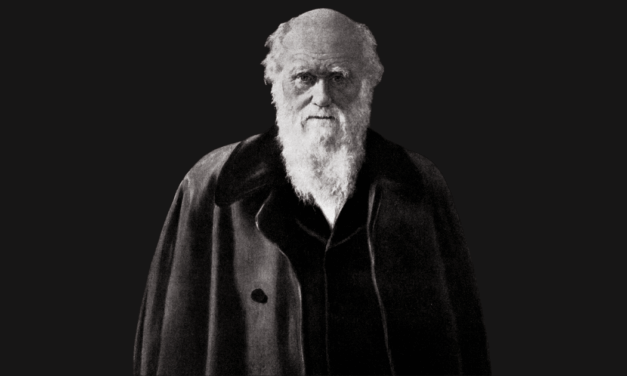Joyce Meyer is a popular Pentecostal preacher living outside of St. Louis, MO, who has been in fulltime ministry since 1980.1 She is a best-selling author in the Christian market,2 and her books cover everything from America’s Christian heritage to weight-loss.3 But she is perhaps best known from her radio and television program, Life in the Word, both of which are broadcast nationally and internationally.4
Meyer shares the platform from time to time with Word of Faith teachers like, for example, Kenneth Copeland, Jesse Duplantis, Benny Hinn, and T.D. Jakes.5 CRI is critical of and concerned with some of her practices and teachings.
In her 1991 booklet, The Most Important Decision You Will Ever Make, she teaches a hallmark doctrine of Faith theology, namely, that Christ had to suffer in hell to atone for our sins and be born again:
During that time He entered hell, where you and I deserved to go (legally) because of our sin….He paid the price there.…no plan was too extreme…Jesus paid on the cross and in hell….God rose up from His throne and said to demon powers tormenting the sinless Son of God, “Let Him go.” Then the resurrection power of Almighty God went through hell and filled Jesus….He was resurrected from the dead ¾ the first born-again man.6
Her assertions are not unlike those of leading Word of Faith proponent Kenneth Copeland, who also believes Christ’s death on the cross was not sufficient to atone for our sins, and that His work of redemption was completed by suffering in hell and being born again. According to Copeland,
When Jesus cried, “It is finished!” He was not speaking of the plan of redemption. There were still three days and nights to go through before He went to the throne….Jesus’ death on the cross was only the beginning of the complete work of redemption.7
[The] word of the living God went down into the pit of destruction and charged the spirit of Jesus with resurrection power! Suddenly His twisted, death-wracked spirit began to fill out and come back to life. He began to look like something the devil had never seen before. He was literally being reborn before the devil’s very eyes. He began to flex His spiritual muscles….Jesus was born again ¾ the first-born from the dead. 8
According to a recently published interview with free-lance writer Ken Walker, however, Meyer contradictorily denies ever believing or teaching that Christ was born again in hell.9
Moreover, in her 1991 booklet, Meyer asserts that salvation is impossible without believing Jesus suffered in hell as the believer’s substitute. Meyer writes, “There is no hope of anyone going to heaven unless they believe this truth I am presenting. You cannot go to heaven unless you believe with all your heart that Jesus took your place in hell.”10
While historic Christianity has debated the issue of whether or not Jesus actually descended into hell (e.g., to proclaim the gospel, declare victory, etc. [1 Peter 3:18-19]), no orthodox believer ever held to the belief that Christ suffered and atoned for our sins in hell, rather than on the cross. Yet, Word of Faith teachers, including Joyce Meyer, teach the necessity of Jesus having to pay for our sins in hell, under the torment of Satan and his angels ¾ a teaching both unsubstantiated by and contrary to Scripture. The entirety of Christ’s atoning work (i.e., His suffering and death in our place) occurred on the cross (e.g., 1 Peter 2:24), ending with His proclamation, “It is finished” (John 19:30). The Christ of Faith theology literally had to become sin, taking on the nature of Satan while in hell, thereby needing to be born again in hell before His resurrection could occur.
OTHER QUESTIONABLE TEACHINGS
Meyer also advocates peculiar and unbiblical manifestations at church gatherings, and attributes them to the power of God. She proclaims,
you gotta come on out in the deep….Oh, I think that word’s anointed right now. Deeeep!!! Mmmmmm! One lady was in a conference recently in St. Louis, and she said “I am telling you, every time you said the word “deep” the fire of God hit me in the pit of my guts.” The lady, she kept falling out of her chair and being on the floor, you know? And she said later, “every time you said ‘deeeeep’ it was like I just couldn’t stay in my chair!”11
For a refutation of this and other unbiblical phenomena (e.g., being “slain in the Spirit”), we recommend Hank Hanegraaff’s book, Counterfeit Revival.
Although there is no biblical precedent, she makes the assertion that angels tell her what to preach:
Now spirits don’t have bodies, so we can’t see them. Okay? There probably is, I believe there is, and I certainly hope there is several angels up here this morning that are preaching with me. I believe that right before I speak some anointed statement to you, that one of them bends over and says in my ear what I’m supposed to say to you.12
She goes on to promote the superstitious belief that certain kinds of jewelry attract evil spirits:
There are many different signs and emblems that people wear as jewelry that are straight from the devil, and they absolutely do not know it, and I’m quite sure there are going to be people here today that probably even have some of these things in your possession. You may even be wearing one. And what they do is they draw evil spirits.13
In lieu of the biblical admonition to test everything by the objective Word of God (1 Thess. 5:21; 2 Tim. 3:16), Meyer further asserts that God would never allow her to fall into error. Turning instead to her subjective feelings she says,
I am going to tell you something right now. I no more believe that my God is going to let me stand around and believe a lie than I believe that I am going to turn green in the next two minutes. God is my source and He loves me and I am after God with my whole heart. And if I am accidentally, or any other way, getting into error, I am going to have a bell go off on the inside of me that is going to be so loud that not only am I going to hear it, but so is everybody else.14
Despite what Meyer’s feelings tell her, Scripture says otherwise. The apostle Peter is a constant reminder of our proclivity for committing error, and demonstrated, for example, by Christ’s rebuking of Peter for attempting to deter Him from His mission (Matt. 16:22-23; Mark 8:31-33), and later by being publicly rebuked by the apostle Paul for yielding to the pressure of the Judaizers (Gal. 2:11-21). Were it not possible for Meyer to fall into deception and error, Scripture’s repeated warnings (e.g., Matt. 24:4-5; Acts 20:28-31; Gal. 1:6-9; 2 Thess. 2:1-3; 2 Tim. 4:3-4; 2 Peter 2:1-3) would be meaningless.
Also problematic are some of Meyer’s beliefs regarding spiritual warfare. According to her, for instance, generational spirits supposedly torment families for generations with specific sins, and she even believes that a demon of lust torments her family. On one occasion she says,
I told you that there was a spirit of incest in my family bloodline….And the thing that I want you to understand today is when there’s a spirit like that in a bloodline, until some person believes on Jesus and takes the blood of Jesus and draws it across that natural bloodline, that devastation goes on for generations and generations….Well see, my father’s grandfather had problems and so his father had problems and so my dad had problems and so I had problems and so if I wouldn’t have stood and believed Jesus, my kids would have had problems and their kids would have had problems and so on and so on.15
Scripture, however, does not support the existence of a demon or spirit of lust, nor any demon of a particular sin. It is true that certain sins (e.g., alcoholism) are perpetuated and can affect families for generations (see Exod. 20:5; Num. 14:18), but these are the consequences of sin ¾ not generational spirits. James’ epistle is clear that we sin because of our own evil desires (v. 1:14). Demons cannot force us to sin; however, they can influence our behavior through temptation (e.g., Gen. 3:1-6). Nonetheless, we are ultimately held accountable for our actions (e.g., Ezek. 18:4, 20). If this were not so, we would have license to exclaim, “the Devil made me do it!”
Along similar lines, she believes that there are “mind-binding” spirits who keep multitudes of believers in a perpetual state of unbelief.16 Through deliverance, however, the attacks of mind-binding spirits will disappear. In her case, “when the spirits left, the ability to believe came rushing back.”17
Meyer overemphasizes and distorts the parameters in which God permits Satan and his angels to work, by attributing practically every negative experience to demonic activity. There is even a demon of accidents. For example, she recounts experiencing a close call while pulling into and out of a fast food restaurant parking lot. She shouts, “‘I rebuke the spirit of accidents, in the name of Jesus!’”18
Her false view of demonic activity propagates a paranoid and superstitious mindset, while obscuring the work of Christ, human accountability, and biblical views of spiritual warfare.
Because of Joyce Meyer’s adherence to a major tenet of Word of Faith theology and her subjective and unbiblical teachings concerning spiritual warfare, CRI cannot recommend her ministry.
CRI will continue to monitor Mrs. Meyer’s practice and teaching. We will periodically update this statement as necessary.
All rights reserved. No portion of this material may be reproduced in any form without the written permission of Christian Research Institute.
Notes:
- Darryal Ray, “LifeLines,” Christian Entertainment, www.christianentertainment.com, retrieved 11 April 2000.
- Evangelical Christian Publishers Association (ECPA), EPCA: Bestsellers List, www.ecpa.org/ECPA/bestsellers.html, retrieved 11 April 2000.
- Joyce Meyer Ministries Online Book Store, https://store.jmministries.com/books.html, retrieved 11 April 2000.
- Welcome to Joyce Meyer Ministries/Life in the Word, https://www.jmministries.org/radio.htm and https://www.jmministries.org/tv.htm, retrieved 11 April 2000.
- ICBM (International Charismatic Bible Ministries) Conference 2000, https://oru.edu/icbm/icbm.html, retrieved 11 April 2000. Similar mention is made in the Christian Research Journal; Jerry L. Buckner, “The Man, His Ministry, and His Movement: Concerns about the Teachings of T.D. Jakes” (Volume 22, Number 2), 16.
- Meyer, The Most Important Decision You Will Ever Make: A Complete And Thorough Understanding Of What It Means To Be Born Again (Tulsa: Harrison House, 1991), 35-36 (emphasis in original). The 1996 version of this booklet contains slightly different wording, but essentially the same message: “Jesus paid on the cross and went to hell in my place….God rose up from His throne and said to the demon powers tormenting the sinless Son of God, ‘Let Him go.’ Then the resurrection power of Almighty God went through hell and filled Jesus….His spirit went to hell because that is where we deserved to go.” See Meyer, The Most Important Decision You Will Ever Make: A Complete and Thorough Understanding of What it Means to be Born Again (Tulsa: Harrison House, 1996, 5th printing), 41-43.
- Kenneth Copeland, “Jesus¾Our Lord of Glory,” Believer’s Voice of Victory (Volume 10, Number 4, April 1982), 3.
- Copeland, “The Price of it all,” Believer’s Voice of Victory (Volume 19, Number 9, September 1991), 4-6.
- Ken Walker, Charisma (November 1998). Walker interviewed Joyce and Dave Meyer in Columbus, Ohio, where Joyce spoke at World Harvest Church.
- Meyer, The Most Important Decision You Will Ever Make (1991), 37 (emphasis added). The words “in hell” are deleted from this sentence in the 1996 version of The Most Important Decision You Will Ever Make. However, substantial references to the general idea remain in this later version (see the example given in endnote six above).
- Meyer, Go To The Upper Room and Wait (Audiotape 6).
- Meyer, Witchcraft & Related Spirits (Audiotape, Part 1).
- Ibid.
- Ibid.
- Meyer, Trophies of God’s Grace (Audiotape, Part 1).
- Meyer, Battlefield of the Mind (Tulsa: Harrison House, 1995) 53.
- Ibid., 53-55.
- Meyer, The Root of Rejection, 86.
(NOTE: A CRI researcher contacted Joyce Meyer Ministries/Life in the Word by phone on 20 January 2000, and confirmed that her ministry is still selling the audiotapes listed above.)







